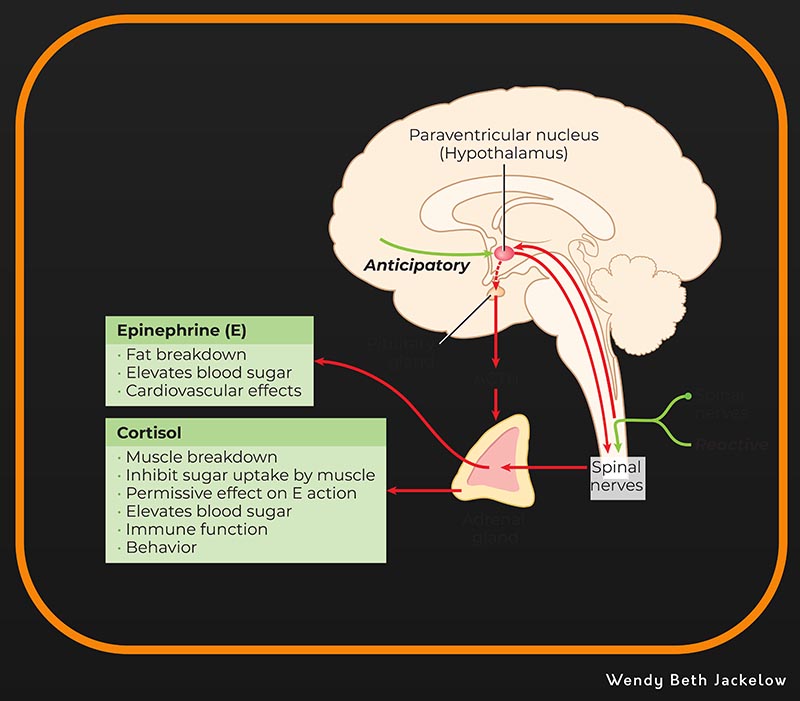Stress
Both fear and anxiety trigger a physiological response called stress in prey animals. Stress results in hormones being released from our adrenal glands.
These adrenal hormones, cortisol and epinephrine, prepare an animal's body for a confrontation by providing blood flow and sugar to the brain and muscles and shutting down the digestive system. While stress is beneficial to animals in the short term, long term stress has many negative consequences in humans such as cardiovascular disease and obesity.

Above: General threats activate our flight or fight system in two different but important
ways. Anticipatory stressors (like an exam or homework) begin in the forebrain while
reactive stressors (getting a bruise or a bite) begin in the brainstem. All stressor
information is sent to the paraventricular nucleus of the hypothalamus which triggers
the release of the hormone ACTH into your bloodstream from the pituitary gland (a
tiny pea sized gland at the base of your brain). ACTH in turn stimulates cortisol
release from the outer shell of the adrenal glands which sit on top of your kidney.
Epinephrine (which used to be called adrenalin) is released from the inner core of
the adrenal gland by nerves coming directly from the spinal cord. Both cortisol and
epinephrine prepare your body for fight or flight by increasing your blood sugar and
speeding up your heart.
Museum at Texas Tech University
-
Address
3301 4th Street, Lubbock, TX 79415 -
Phone
806.742.2490 -
Email
museum.texastech@ttu.edu
